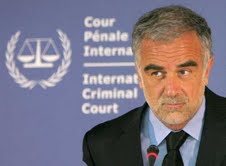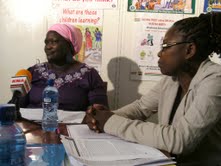By Zhang Lei
He remembers like it was yesterday the night he was forced to flee the Xinjiang Uyghur Autonomous Region as officers raided his apartment-turned-office and closed down his non-governmental organization on October 18, 2006.
“I never felt ashamed,” said 27-year-old Chang Kun. “In fact, I’m still proud of what I did.”
For seven years, Chang hasn’t quit despite constant setbacks and frustrations.
As founder of the China Youth HIV/AIDS Assembly, Chang believes in what he’s doing: He has devoted his life to AIDS prevention work.
“When I fight AIDS, I never feel tired, though it’s very challenging work,” he said.
He has chosen a very different path to most of his peers from his rural hometown of Chengguan in Linquan county, Anhui Province.
As they struggle to buy apartments and make a traditional success of their lives in the bigger cities, Chang has instead returned home to Chengguan to open up a humble community youth center.
It was in early 2006 that he realized his life’s mission: to fight AIDS.
“I suddenly found this inner strength because I’d discovered what my calling was,” Chang said.
He was studying law at Xinjiang Normal University in Urumqi and already devoting most of his spare time to helping the disadvantaged.
He had started a volunteer league organizing environmental protection and disabled groups when he realized AIDS was a taboo problem neglected by most students.
A large AIDS prevention forum was launched by 20 colleges in Xinjiang in 2004, attracting attention from public and local authorities.
The forum was a hit, but Chang said he was blamed by university teachers and leaders for not sharing the limelight, for example hogging television interviews.
“I was too young to handle the complicated relationships back then,” he said. Mostly as a result of this inexperience, Chang’s league was disbanded nine months after it had been formed.
Chang began looking deeper into AIDS, as “it’s a very interesting topic, connected to many perspectives of society including politics, economy, humanity, environment and religion.”
Xinjiang was China’s fourth-most severely affected area at that time, he said. Since he had lost teacher support, he expanded his AIDS support group outside college and founded his non-governmental organization (NGO) the Snow Lotus HIV/AIDS Education Institute on March 16, 2005. He also kept a close eye on Hepatitis B issues.
The Chinese mainland has more than 500 unregistered AIDS NGOs, mostly funded by government health departments, he explained.
“Most AIDS NGOs are not registered, but tolerated and funded by government as the potential patients, such as sex workers and homosexuals, are hidden from society,” Chang said.
Chang Kun’s home in Linquan county, Anhui Province is now converted into a community center with free books and Internet access for youth. Photo: Courtesy of Chang Kun
Exit to applause
The first grass-roots NGO aimed at preventing AIDS among homosexuals was officially registered on March 22 as private non-enterprise at the district Civil Affairs Bureau in Shanghai.
“I can only say I’m a very lucky man,” Bo Jiaqing of the Shanghai Jing’an District Youth Service Center of AIDS Prevention organization told the China Philanthropy Times.
“Bo is modest in mind. Some NGOs are self-assuming and widen the distance with government,” said Gu Weimin, director of the Shanghai Jing’an District Social Organization Association.
Despite sparking an invaluable national debate over student rights, Snow Lotus was shut down on October 18, 2006 by the Xinjiang provincial government.
Ironically, the Xinjiang Economic Daily ran a front-page profile of Chang a month later, headlined “Strive for AIDS prevention for a lifetime.”
“I chose to stay in Xinjiang because I couldn’t sleep at night thinking of the problem and feel bad for people living under the threat of AIDS here,” he told the paper.
“I was unsure about what to do in the future when my friends and teachers told me I should focus more on myself and my own life,” he said.
“But after I initiated Snow Lotus, my eyes were opened. Now I’m more determined to devote myself to AIDS prevention work.”
Five days later, Chang was expelled from Xinjiang Normal University for “leaving school without permission and cutting classes.” He was forced to leave Urumqi by authorities.
Chang came to the capital city and co-founded the Beijing Yirenping Center with lawyer friends to fight discrimination against HIV/ AIDS patients and Hepatitis B carriers.
In support of the rights of 19 junior high school students with Hepatitis B to return to school on December 28, Chang’s organization launched an Internet-based signature campaign that drew 2,000 supporters including Hong Kong movie star Andy Lau.
Chang was invited to participate as a civil society representative at a UN meeting in New York on June 10 and 11 2008 to review global progress toward realizing the Declaration of Commitment on HIV/ AIDS and the Political Declaration on HIV/AIDS.
Soon after that meeting, he was invited to study in San Diego as a visiting scholar, where Chang found inspiration in California’s community centers.
“The Americans care about their own communities and are very willing to contribute,” he said.
Arriving back home January this year, Chang struggled in vain to explain to his parents how “civil rights education begins at home.”
His parents told him they would have preferred he get “a decent job,” he said. After countless arguments, the fact that his parents have finally come around to respect his choice of work comforts and inspires Chang today.
“I hope my own happiness from changing my family’s attitude can also benefit my hometown,” he said. “If I can change my parents, giving them new ideas, why can’t I change my relatives, neighbors and fellow villagers? It’s a big world, I must tell them.”
Source: Global Times
[08:36 December 01 2010]
Comments
Big city, small town
NGO workers often receive recognition and acclaim in big cities, he said.
For example, an AIDS prevention NGO from Kunming, capital city of Yunnan Province, Yunnan Parallel, is launching a dinner party calling for volunteers to dine with HIV/AIDS patients ahead of World AIDS Day today. About 100 people have applied for the 20 seats. Lots had to be drawn.
In smaller towns like his, it can be quite a different story.
Many locals regard Chang as “silly”, he admitted. His parents have come under great pressure for their son’s nonconformity, he explained. Chang is not about to back down just to please the neighbors.
“The situation won’t change overnight, or ever, if nobody challenges it,” Chang said.
The Internet is popular in Chengguan and Chang introduced e-mail and search engines to local people, who previously only used the Internet to play games, chat or watch movies.
His center also provides free legal advice and assistance in fields such as public health, anti-discrimination and other public areas. Chang hopes that health education will prevent dissemination of HIV/ AIDS, tuberculosis, hepatitis and other infectious diseases in AIDS-stricken Linquan.
He had not known that AIDS was rampant in his hometown until he left Xinjiang. So far no one has come to Chang with an HIV/AIDS problem or seeking legal assistance. “The group is often invisible,” he said. “We still need time.
“I’m not going to do something just to look good. My aim is to change people’s mind through civil education. There’s a long way to go.”
Home library
To achieve his goal, Chang’s dilapidated two-story building was renovated into the Chang Kun House, a youth center available to a county of 2.13 million people, the largest in China.
Most visitors are nearby high school students who have communicated well with lecturers Chang has invited from Japan and Hong Kong. The youngsters’ appetite for academic books is gaining each day, he said. With a collection of 2,000 books, the library attracts not only students but workers too.
The need is great: Linquan county suffers from pervasive drug use and unplanned births. A number of county officials have ended up in prison for corruption. There are no railways, highways or waterways, said Zhu Aimin, the county party secretary appointed last year.
Some officials aren’t happy with Chang’s innovations and have told him to shut up shop. Chengguan Party Secretary Ge Jinhai, for example, told the Voice of America on November 9 that illegal public libraries run by individuals would be banned.
“Thanks to a thorough interview by [Guangzhou-based newspaper] Southern Metropolis, now they left us alone,” Chang said.
Rumor has it that Chang received money from abroad and that the government wanted him to do-nate a chunk to government coffers. Chang denies this but admitted a week after opening, two officials from the county press and publication bureau inspection team went to the center to check for pirated books.
“One official was apparently drunk,” he said. “Actually they wanted me to bribe them and treat them to dinner.”
Familiar with the sight of local leaders being treated like emperors, Chang chose to take the path of most resistance, refusing to cooperate with their demands.
“It’s important local people understand the community leaders are not rulers, but voted to serve the people, and their scope of power is limited,” he said.
“They want us to close down because their interests are infringed.”
“Come what may, I’ll hang on for at least three years, during which time I believe things will get better,” he said.
He has spent 30,000 yuan on the center, mostly money from his family. Seven thousand yuan came from friends’ and strangers’ donations.
“I am motivated by the progress we’re making on a major problem that is generally ignored and marginalized,” Chang said.
“I guess it must have something to do with my rebellious nature.”
http://special.globaltimes.cn/2010-12/597940.html
Chang Kun
General Coordinator of China Youth HIV/AIDS Assembly
Board Member and Co-founder of Beijing Yirenping Center




